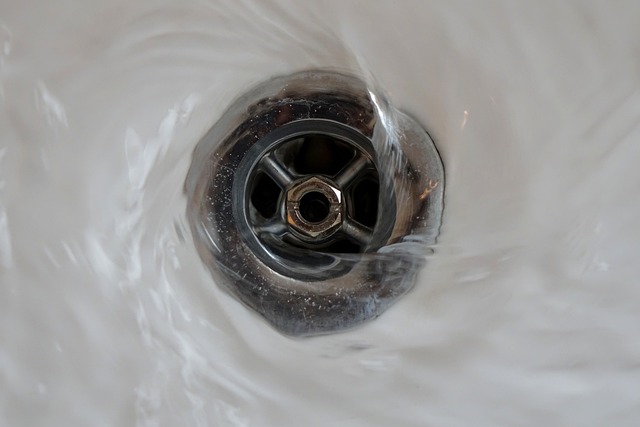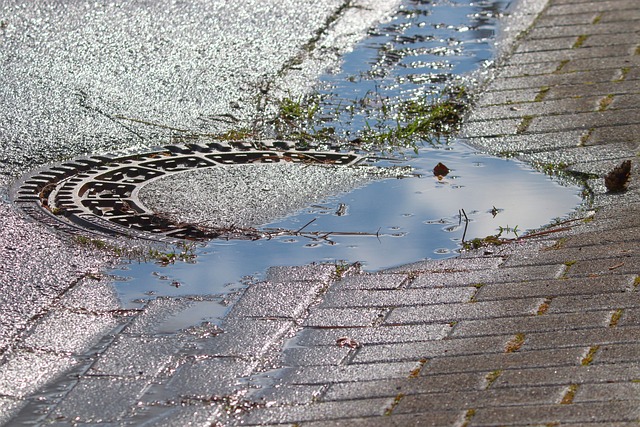Gurgling sounds and slow drainage are signs of a clogged drain indicating temporary vacuum issues caused by blockages. Regular checking prevents small problems from escalating into costly repairs. Common culprits include grease, food particles, hair, objects, tree roots, and damaged fixtures. Prompt action is advised upon recognizing signs of a clogged drain, using homemade solutions or professional services to maintain efficient plumbing.
“Ever noticed the peculiar gurgling sounds coming from your sink? Don’t worry, you’re not alone. This phenomenon, often dismissed as mere ‘bubble trouble’, can be an early indicator of underlying plumbing issues. In this article, we unravel the basic mechanics behind these noises and explore common causes, from hair clogs to pipe damage, based on signs of a clogged drain. We’ll also provide practical solutions for unclogging your drains at home and offer preventive tips to keep future clogs at bay.”
- Understanding Gurgling Sounds: The Basic Mechanics of Plumbing
- Common Causes of Clogged Drains and Their Corresponding Signs
- Solutions and Prevention: Unclogging Your Drain at Home and Avoiding Future Issues
Understanding Gurgling Sounds: The Basic Mechanics of Plumbing

The gurgling sounds emanating from your sink or shower drain aren’t just annoying; they’re actually a window into your plumbing system’s inner workings. These noises are caused by changes in water pressure as it flows through pipes and drains. When there’s a clog, the water can’t move freely, creating a temporary vacuum that pulls air back up the pipe, producing the characteristic gurgling or bubbling sound. This is often one of the first signs of a clogged drain, indicating a potential blockage further down the line.
Understanding the basic mechanics behind these sounds helps us recognize when something might be amiss with our plumbing. If gurgling persists after running water or flushing the toilet, it could signal a more significant issue like a partial clog or even an underlying structural problem. Regularly checking for these signs can help prevent small issues from escalating into costly repairs.
Common Causes of Clogged Drains and Their Corresponding Signs

Clogged drains are a common household issue, often indicated by gurgling sounds coming from your sink or bathtub. Understanding the root causes behind these signs is key to effective troubleshooting. One of the primary culprits is build-up of grease, food particles, and hair—a mixture that hardens over time into a sticky substance known as congealed fat. This can be easily identified by a strong, unpleasant odor or visible evidence of solidified matter in the drain.
Other common causes include object obstructions like toys, dental appliances, or foreign objects accidentally dropped down the drain; root intrusions from nearby trees, which can penetrate and grow within pipes; and damaged or worn-out plumbing fixtures that weaken over time, leading to clogs. Look out for persistent water draining slowly or not at all, as these are classic signs of a clog. Additionally, sudden gurgling sounds followed by decreased water pressure in the affected area suggest an obstruction is present.
Solutions and Prevention: Unclogging Your Drain at Home and Avoiding Future Issues

If you’re already dealing with bubble trouble, unclogging your drain at home is often a quick and affordable solution. Start by gathering a few household items like baking soda, vinegar, and hot water. Pour half a cup of baking soda down the sink, followed by a cup of white vinegar. This combination will fizz and foam, helping to break down any built-up grime or hair in the drain. After 15 minutes, flush the mixture with hot water.
To prevent future clogs, regular maintenance is key. Implement simple habits like running hot water for several minutes after washing dishes or shaving to clear residual grease and hair. Avoid pouring greasy foods, coffee grounds, or non-biodegradable materials down the drain. Install a drain cover to catch hair and other debris, and consider using enzyme-based cleaners periodically to keep your pipes in good condition. Recognizing the early signs of a clogged drain, like slow drainage or unusual gurgling noises, can also help you tackle issues before they become more severe.
Understanding the gurgling sounds in your sink isn’t just about solving immediate drain issues; it’s a crucial step in recognizing the subtle signs of a clogged drain. By knowing the common causes, such as accumulated hair or foreign objects, you can take proactive measures to prevent future clogs. Regular maintenance and simple unclogging techniques at home are essential tools in your plumbing arsenal. Remember, addressing these issues promptly can save you from more severe plumbing problems down the line, ensuring a smooth and efficient drainage system.
